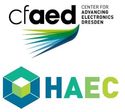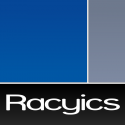2.8 Enabling ICT Innovations for European SMEs
Date: Tuesday 20 March 2018
Time: 11:30 - 13:00
Location / Room: Exhibition Theatre
Organisers:
Rainer Leupers, RWTH Aachen, DE
Bernd Janson, ZENIT GmbH, DE
Moderator:
Luca Fanucci, University of Pisa, IT
Technology-driven business in Europe fails more often compared to other regions such as the USA and China. Turning results into products is a challenge which starts at the very beginning of an idea for a new technology and obliges researchers to cooperate with business experts and investors. The European Commission started its Smart Anything Everywhere (SAE) Initiative to foster transfer from research to business in the areas of Cyber Physical Systems (CPS) and via the instrument of Digital Innovation Hubs (DIH).
Two SAE Initiative projects will be presented in the workshop session, supported by two speakers from industry presenting their products consisting of programming technology SLX (Silexica) and software for automated driving (BASELABS). The workshop session will introduce the SAE approach and their individual funding schemes for European university-industry cooperation. The technology transfer concept focuses on direct cooperation between universities and SMEs supported by open innovation networks and other stakeholders like investors. The session speakers will demonstrate in a pragmatic way and by use of concrete examples how technology transfer can be initiated and implemented in practice and to overcome the associated pitfalls and use the innovation opportunities. The mix of presentations ensures that both academic and industrial viewpoints and concerns are adequately addressed. The workshop session will hence be of interest to a large audience. Amongst others, the goal is to motivate more stakeholders to engage in international technology transfer.
During the session, SAE representatives will share their experiences and insights as researcher, founder, entrepreneur, investor or consultant.
| Time | Label | Presentation Title Authors |
|---|---|---|
| 11:30 | 2.8.1 | PRESENTATION OF TETRAMAX Speaker: Rainer Leupers, RWTH Aachen, DE Abstract TETRAMAX as part of the SAE Initiative started in 2017 and is funded by Horizon 2020. The project supports application experiments between academia and industry (SMEs) related to Internet of Things (IoT) technologies and focusing on customized low energy computing (CLEC). |
| 11:45 | 2.8.2 | THE FED4SAE PROJECT, ACCELERATING EUROPEAN CPS SOLUTIONS TO MARKET Speaker: Isabelle Dor, COMMISSARIAT A L ENERGIE ATOMIQUE ET AUX ENERGIES ALTERNATIVES, FR Abstract Fed4SAE - accelerating European CPS solutions to market - will boost digitization of European industry by strengthening companies' competitiveness in the CPS market under the Smart Anything Everywhere Initiative. The H2020 project aims at creating a pan-European network of Digital Innovation Hubs (DIH) by leveraging existing regional technology or business ecosystems across complete value chains and multiple competencies. The network within Fed4SAE will enable start-ups, SMEs and mid-cap companies in all sectors to build and create new digital products and services. The project mission also includes innovation management and links these companies to suppliers and investors in order to create innovative CPS solutions and accelerate their development and industrialization. |
| 12:00 | 2.8.3 | OPEN INNOVATION BUSINESS BASED ON EFFICIENT NETWORKING Speaker: Bernd Janson, ZENIT GmbH, DE Abstract Open innovation is based on strong networks between academia and industry. ICT developments depend greatly on open innovation due to short innovation cycles and strong competition. To build an open innovation network which operates in a regional, national and international context was the idea behind the Enterprise Europe Network which started in 2008. The overall aim is to support the competitiveness and innovation capabilities of SMEs in Europe. Today, the Enterprise Europe Network is the largest innovation network in the world. It addresses every need in the whole value chain of the innovation process - from idea to product. Bernd Janson will explain how 600 partners and over 6000 consultants worldwide work together to improve the performance of SMEs in Europe. He also explains the Network's role within Tetramax. |
| 12:15 | 2.8.4 | THE SILEXICA MULTICORE SOLUTION Speaker: Juan Eusse, Silexica GmbH, DE Abstract Silexica was founded in 2014 as a spin-off from RWTH Aachen University and expanded rapidly to complete an $ 8 million "Series A" round of financing in November 2016. The following year saw Silexica open offices in Silicon Valley and Japan and win multicore solution projects with companies including Denso, Ricoh and Fujitsu. |
| 12:30 | 2.8.5 | TRANSFERRING RESEARCH RESULTS TO SAFETY-RELEVANT PRODUCTS: CASE STUDY ON AUTOMATED DRIVING SOFTWARE Speaker: Robert Schubert, BASELABS GmbH, DE Abstract While the transfer from research to market exploitation is already a challenge in itself, additional tasks arise when it comes to products that are used for safety-critical applications. This case study will focus on the example of BASELABS, a software company which focuses on automated driving. The presentation will highlight the path from research via pre-development towards safety-certified software products and the different business models related to each stage. The objective is to provide insights and best practices helping researchers and entrepreneurs with similar challenges. |
| 12:45 | 2.8.6 | INTENTA GMBH Speaker: Basel Fardi, Intenta GmbH, DE Abstract Intenta is on the cutting edge of research and development in the fields of image processing, data fusion, and object/person recognition and detection. Intenta's focus is the development and marketing of product lines based on smart sensor technologies. |
| 13:00 | End of session Lunch Break in Großer Saal and Saal 1
On all conference days (Tuesday to Thursday), coffee and tea will be served during the coffee breaks at the below-mentioned times in the exhibition area (Terrace Level of the ICCD). Lunch Breaks (Großer Saal + Saal 1)On all conference days (Tuesday to Thursday), a seated lunch (lunch buffet) will be offered in the rooms "Großer Saal" and "Saal 1" (Saal Level of the ICCD) to fully registered conference delegates only. There will be badge control at the entrance to the lunch break area. Tuesday, March 20, 2018
Wednesday, March 21, 2018
Thursday, March 22, 2018
|











